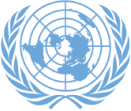CARICOM statement on Other Weapons of Mass Destruction
First Committee thematic debate – 22 October 2018
Mr. Chairman,
I have the honour to speak on behalf of the 14 Member States of CARICOM.
CARICOM wishes, first of all, to reiterate its strong support for the Chemical Weapons Convention and for the work being done by OPCW to ensure its full implementation. As the first Disarmament Agreement that provides for the elimination of an entire category of weapons of mass destruction, the Chemical Weapons Convention has made a significant contribution towards the goal of general and complete disarmament and the codification of a universal norm against the use of chemical weapons. In the preamble to the Chemical Weapons Convention, Member States agreed that “… achievements in the field of chemistry should be used exclusively for the benefit of mankind”. And so we are dismayed and alarmed at the incidents confirmed by OPCW, where chemicals have been used as weapons. CARICOM condemns these incidents in the strongest terms and calls upon all Member States to uphold the provisions of the Convention.
Use of chemical weapons under any circumstances is unjustifiable, unacceptable and illegal and has grave consequences for the affected populations and for the environment. We must therefore ensure that any use of chemical weapons is fully and impartially investigated and those responsibl4 held accountable. This will not only contribute to the further strengthening of the norm against chemical-weapon use but will help ensure that victims of such incidents receive redress.
CARICOM welcomes the progress achieved in the global effort to permanently eliminate chemical weapons and takes note of the reports of the Director-General of OPCW on the full and complete destruction of declared chemical weapons stockpiles by a number of States Parties to the Convention, which we view as serious and tangible steps towards universal implementation. We urge those Member States that may be defaulting on their obligations under the Convention to take the necessary steps to bring about full compliance. And we encourage the few remaining Member States that have neither signed nor ratified the Convention to act in the spirit of the Charter and join the 193 States that are already Parties so that we can achieve the goal of universal adherence. CARICOM Member States will continue to be principled adherents to the Convention and to strongly advocate for compliance with its provisions by both States Parties and non-state actors.
I take this opportunity to express our appreciation to OPCW for its ongoing capacity-building initiatives in our region in keeping with the aims of the Convention.
Mr. Chairman
We also wish to reaffirm our support for the Biological Weapons Convention and welcome the agreement reached at the Meeting of States Parties in December 2017 to retain the previous structure of meetings for the inter-sessional period. Our collective and consistent engagement on issues within the ambit of the Biological Weapons Convention is especially vital at this time when developments in science and technology are increasing the possibilities for the acquisition, access to, and use of biological weapons, including by non-state actors.
CARICOM notes the Secretary-General’s observation in his Agenda for Disarmament that the world is largely unprepared for the catastrophic consequences that would result from a deliberately released disease. Robust measures must therefore be taken at the national level to complement regional and international efforts to bring about the full and effective implementation of the Convention. We also share the Secretary General’s view that a stronger international capacity to investigate any alleged use of biological weapons and to quickly detect any illegal acts would serve as a deterrent to their use.
Mr. Chairman,
CARICOM shares the concern of other Member States about the spread of missile systems capable of delivering WMDs. The efforts of the international community should be geared towards limiting the spread of these systems and the equipment, technology and knowledge needed to develop, produce and acquire WMD missile delivery systems.
We are deeply concerned by the increasing threat posed to international peace and security by terrorists and other non-State actors. Of particular concern is the danger posed by their possession of WMDs. We are conscious of the challenges involved in ensuring that terrorists do not install themselves in the sovereign territories of Member States to pursue aims that are contrary to the various disarmament instruments to which the international community has subscribed. This reality is especially acute for Member States of CARICOM, where our porous maritime and land borders present special challenges in keeping out undesirable individuals and assets. These challenges are further compounded by the poverty and marginalization of some sectors of our populations, who therefore become fertile breeding ground for radicalization.
It is against this backdrop that CARICOM has collaborated with the United Nations in the elaboration of a CARICOM Counter-Terrorism Strategy to confront terrorism and associated violent extremism. This Strategy, which was adopted by CARICOM Heads of Government in February 2018, is based on respect for democratic values, human rights and the rule of law, good governance, and religious tolerance. It pays particular attention to preventing radicalization and addresses the phenomenon of returning Foreign Terrorists Fighters by providing for their reintegration into society, in keeping with the UN Global Counter-Terrorism Strategy. We believe that a resilient region able to withstand and confront violent extremist ideologies is key to preventing radicalization and we wish to underscore the importance of a cooperative approach at all levels towards achievement of this goal. CARICOM is committed to fulfilling its obligations under Security Council resolution 1540 and will again join the consensus in adopting the resolution Preventing Terrorists from Acquiring Weapons of Mass Destruction.
In conclusion, Mr. Chairman, I wish to reiterate CARICOM’s unwavering commitment to the total elimination of all weapons of mass destruction. We urge all Member States to step up their efforts both individually and collectively to ensure full alignment with the legal regime governing such weapons.
I thank you.


